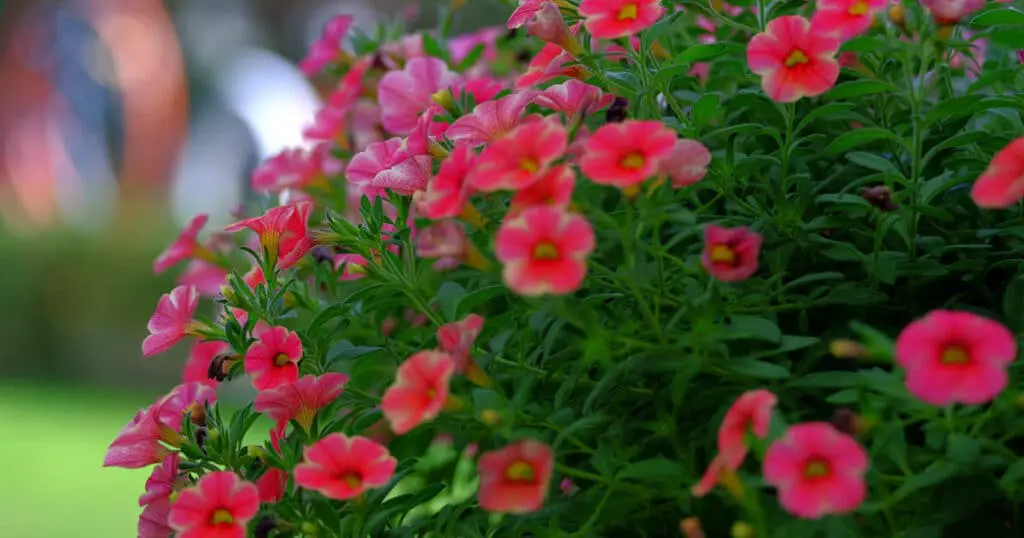There’s a good reason petunias are so popular. These colorful and fragrant flowers are a great addition to any garden. But if you live in a deer-populated area, you probably wonder if deer eat petunias. After all, you don’t want to introduce these beautiful flowers to your property just to have them devoured by cervids. So, let’s find out: do deer eat petunias?
So, Do Deer Eat Petunias?
The short answer is yes, deer do eat petunias. Deer are herbivorous animals, and they enjoy eating a wide range of vegetation. They’re not picky, especially when they’re hungry. They’ll happily eat your beautiful petunias.
Petunias are attractive to deer because of their vibrant, beautiful blooms and fleshy stems and leaves. Plus, many species of petunias grow close to the ground, which makes it easier for deer to feed on them.
What are Petunias?
Petunias come in different colors and have a lovely scent, and these characteristics make them a favorite with gardening and landscaping professionals. They’re also easy to grow and they bloom for a long period with proper care.
This type of flowering plant can flourish in a variety of soil types, but they do best in soil that can drain water easily and has a pH level of 6 to 6.5.
Most petunia species need about six hours of full sunlight a day for the flowers to fully bloom. However, during the summer, partial shade can help protect the blooms from drying out.
There are different petunia varieties to choose from, including:
Grandiflora Petunias
Grandiflora petunias, developed in the 1950s, are the oldest variety of petunias. They also have the largest blooms, which can grow up to five inches wide.
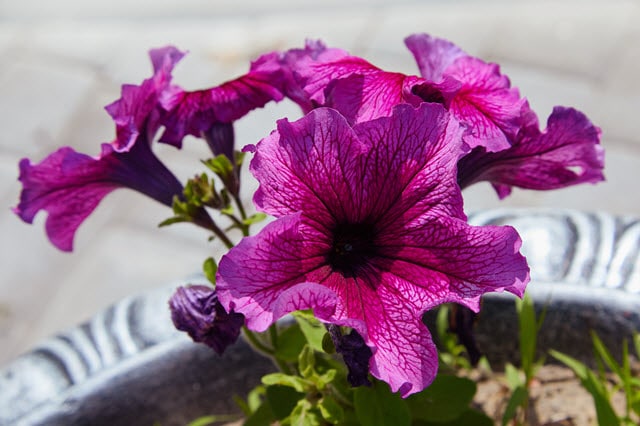
The blooms are slightly darker in color compared to other petunia varieties, and they also appear wavy or heart-shaped on the edges.
Grandiflora petunias come in single flower and double flower varieties. Single flower varieties of Grandiflora petunias typically have one set of petals in a single flower, while double varieties produce multiple sets of blooms in one flower.
This type of petunia prefers areas with moderate summers and less rain. Too much heat or humidity makes the petals prone to rot, while heavy rains can damage the petals, making them difficult to deadhead.
Some of the popular varieties of Grandiflora petunias are the Dreams, Storm, and Ultra petunias.
Multiflora Petunias
Multiflora petunias have smaller blooms that grow up to two inches wide. They are smaller than Grandiflora varieties but produce larger quantities of flowers.
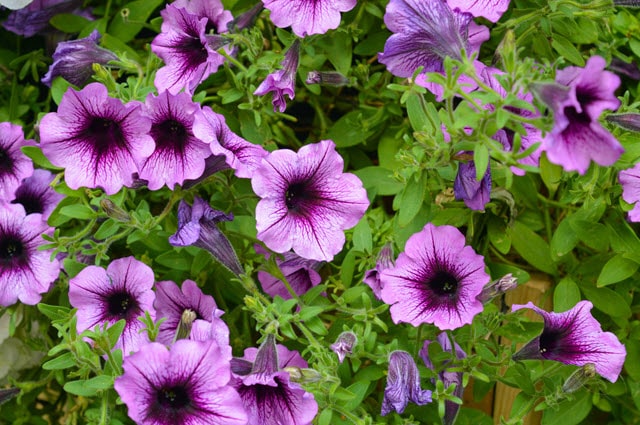
Multiflora petunias have a compact growth habit, making them suitable to grow in flower beds, hanging containers, or along the borders of walking paths.
Like Grandiflora petunias, multifloras are available in single flowering or double flowering varieties.
Compared to Grandifloras, multiflora petunias are more resilient against hot weather. They can also hold up longer against strong winds and rain.
Milliflora Petunias
Milliflora petunias, just like multiflora petunias, are compact and produce blooms in large quantities. However, their blooms are much smaller than multifloras, growing up to about one to one and a half inches in diameter.
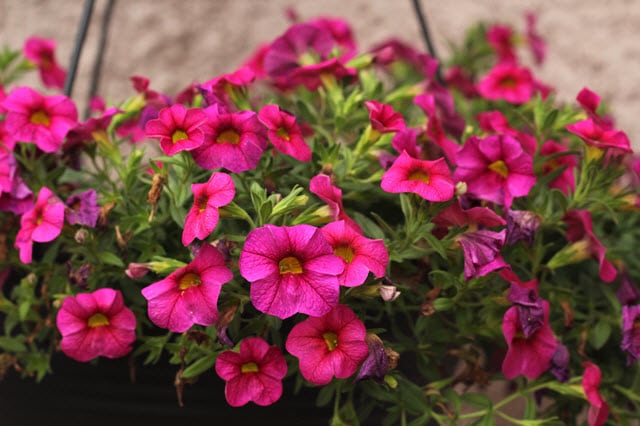
Millifloras look good in hanging baskets, window boxes, and as edging or accents on flower beds. Picobella and Fantasy are some of the most popular milliflora petunias varieties.
Hybrid Petunias
Hybrid petunias, also called floribundas, combine the features of Grandiflora and multiflora petunias.
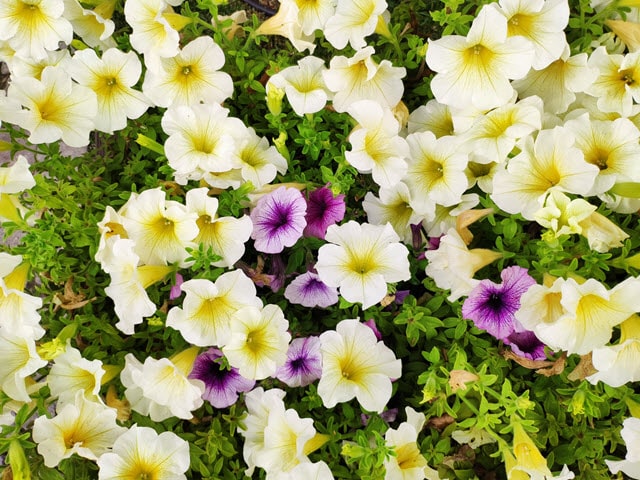
They have abundant, large blooms and can withstand humid, rainy, and windy weather.
Spreading Petunias
Spreading petunias (also known as wave petunias) are ideal as a ground cover because they grow low (about six inches in height) and spread to over four feet.
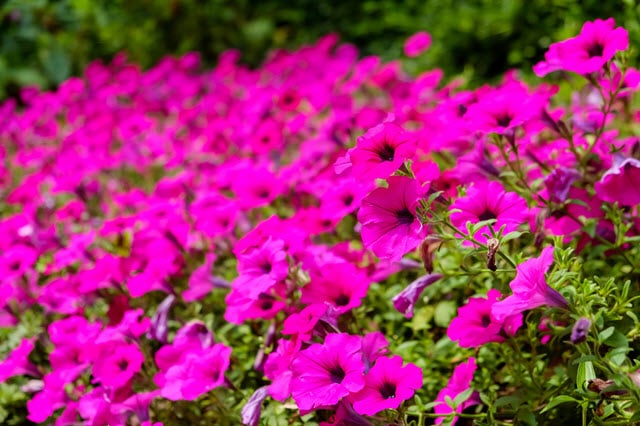
They also work well as hanging or cascading plants.
How Do I Keep Deer from Eating My Petunias?
Just because deer eat petunias doesn’t mean you should forget about planting them in your garden. There are several things you can do to help deter deer from browsing your garden and gorging on your petunias.
Plant on High Ground
Pesky deer aren’t good at climbing or walking up stairs or steep slopes. To discourage them from going near your petunias, consider a split-level garden design and plant the petunias on the higher levels.
Planting petunias up high in hanging baskets, on terraces, or in a sunken flower garden can also help keep deer out.
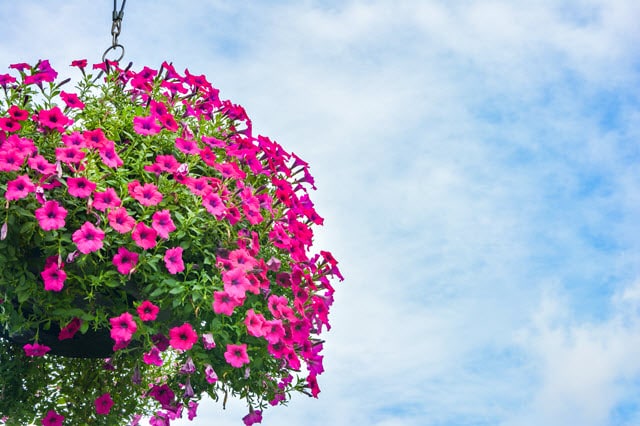
Deer-Proof Your Garden With the Right Fence Type
Consider putting up a tall, stockade fence made of cedar, cypress, or redwood. If deer can’t see what’s on the other side of the fence, they won’t bother exploring your property.
Alternatively, you can install hedge shrubs that are high enough to make deer afraid of jumping over or walking through them. Shrubs with spiny or jagged leaves like some of the Mahonia varieties can deter deer from entering your property.
Mesh netting is another option if you want to keep deer far away from your yard but would also like to have an unobstructed view of the area surrounding your property.
Install Motion-Activated Sprinklers or Garden Lights
If deer end up on your property anyway, there are certain things you can install that will discourage deer from going near your petunias. Some of the most popular are motion-activated sprinklers and floodlights.
Use Auditory and Odor Repellents
Deer tend to get skittish and run away when they hear loud noises and sounds they’re unaccustomed to. You can use whistles, wind chimes, and noisemakers to spook deer and prevent them from damaging your petunias.
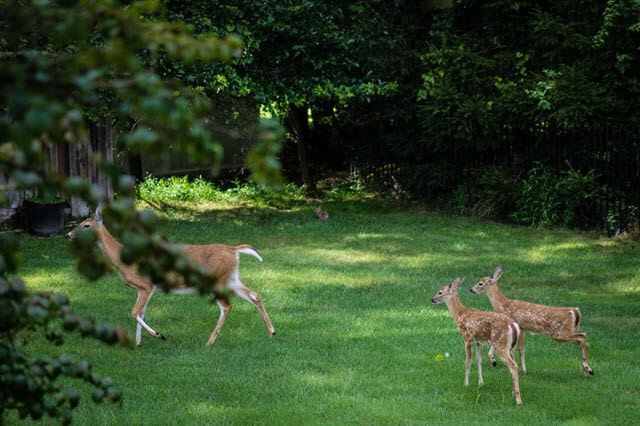
Deer also rely on their sense of smell when searching for food. If they find the scent of their surroundings offensive, they will leave and look for other places to find nourishment.
You can spray your plants with store-bought deer repellents to keep deer away from your petunias. DIY deer deterrent sprays like those made with rotten eggs, chili peppers, cinnamon, or garlic can also work.
Sprinkling soap shavings or placing human hair clippings wrapped inside a piece of thin cloth (like a teabag) near and around your petunias can also help repel deer.
Are There Deer-Resistant Petunia Alternatives?
Keep in mind that no plant is completely deer-proof, especially if you’re dealing with hungry deer.
But there are certain plants that you can add to your property that will make deer significantly less likely to come onto your property. Consider planting deer resistant plants near your petunias.
Aromatic or Pungent-Smelling Foliage
You can grow plants and flowers that have a strong scent, like lavender, marigold, peony, or bee balm. Also, try adding pots of fragrant herbs like mint, thyme, or oregano around your garden.
Deer will avoid walking through these plants because the odor can stay on their fur and feet.
Fuzzy or prickly foliage
Deer don’t like nibbling on foliage that feels bristly, sticky, or prickly against their tongue. Try growing plants with fuzzy, thorny, or fibrous stems or leaves.
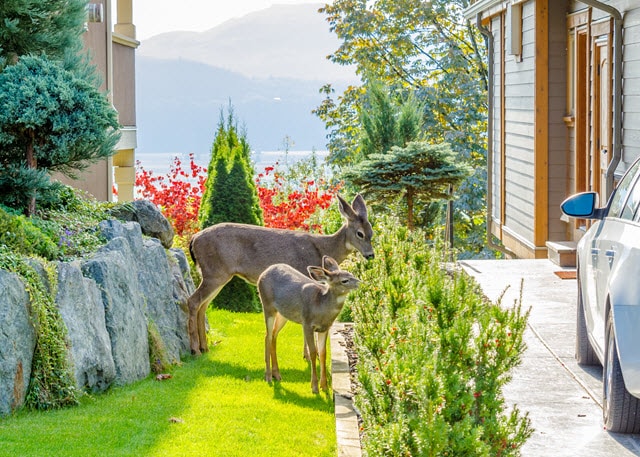
Lamb’s ear, cleome, and wood sage are examples of deer resistant perennial plants and flowers that you can add to your yard.
Leathery Foliage
Plants and flowers with leathery leaves, like holly, iris, and arrowwood, are unattractive to deer. These plants are difficult to chew and digest, so deer don’t enjoy eating them.
Poisonous Foliage
Deer have an aversion to toxic plants and flowers, like foxglove, daffodil, and monkshood.
What Other Animals Eat Petunias?
There are several other animals that love devouring petunias. Examples include mice, rabbits, squirrels, and even chickens.
Bugs and insects such as snails, aphids, beetles, tobacco budworms, and tomato hornworms will also feed on the soft petals of your petunias.
Final Thoughts On Do Deer Eat Petunias?
We’ve learned that deer enthusiastically eat petunias. That means if you plant them in your garden and there are deer in the area, you should follow the advice we’ve provided here to protect your flowers.
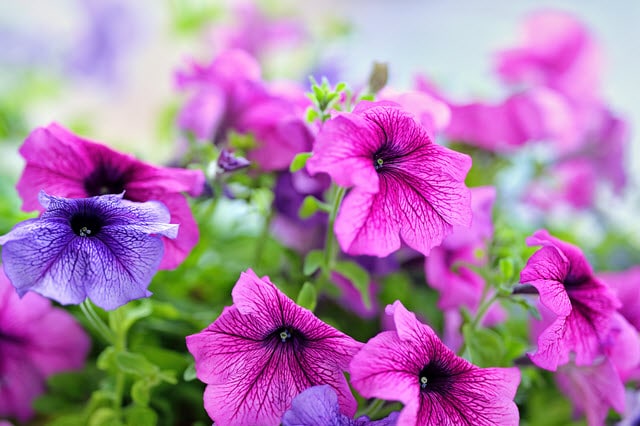
And whenever you choose to plant annuals that deer may enjoy eating, understand that you’re taking a risk and be realistic about the outcome – even if you take steps to protect your garden.

